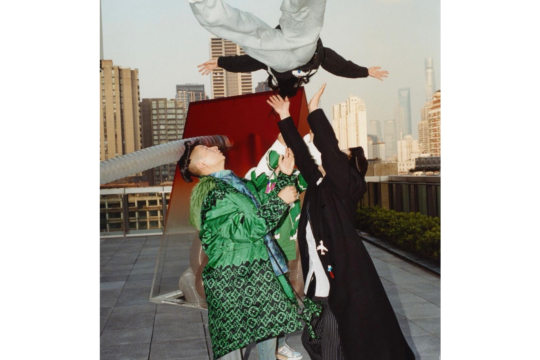
Looking for the Soul of Abkhazia
“More than 20 years after Russian-backed Abkhaz rebels pushed out Georgian troops in a bloody, year-long proxy war decried by Georgian authorities as illegal and a step towards “de facto annexation,” only four United Nations member states — Nicaragua, Venezuela, Nauru and Russia— recognize Abkhazia, a small territory on the eastern coast of the Black Sea bordering the Caucasus Mountains.
Abkhazia is a time capsule. Many buildings, constructed during its days as a Soviet republic, are pockmarked with bullet holes from the 1992 conflict. The economy is weak and dependent on tourism from Russian visitors. Young people with means attend college outside the territory — and stay there after graduation. But Abkhazia — which, in the local language, means “land of the soul”— is more than its decay and its disputed political status, said the Russian photographer Ksenia Kuleshova… “My aim was not to concentrate on the war or the ruined buildings,” … “I didn’t want to concentrate on the negative side. I wanted to find the soul.”
Ms. Kuleshova grew up hearing about Abkhazia from her parents, who vacationed there before the war and remembered it as “a beautiful country with mountains and tasty vegetables and fruits.” When she arrived in Sukhumi, the territory’s capital, for the first time three years ago, she found its appearance unsettling. “You come there and you feel it’s another world, that this country slept for a while because they didn’t restore buildings after the war,” she said. She overcame her shock and got to work, connecting with locals through a friend of her parents. She was looking, she said, for signs of joy, and she found them in abundance. She attended soccer games and horse races and parades, met folk dancers and socialites and zookeepers, and watched people play in the first big snowfall in Sukhumi in nearly eight years. Once, she went to three weddings in a day.
“I wanted to show something beautiful and I wanted to show that there’s happiness,” she said. But there was no escaping history. While bullet holes are not the focus of her photos, they sometimes appear in the background. And in her conversations with Abkhazians, talk often turned to the war. “It was a very cruel war and almost every family lost someone,” she said. “They can’t forget it.”
There has been some change in Abkhazia’s prospects recently. After years of stagnation, business along the Black Sea coast has picked up. Avtandil Gartskiya, Sukhumi’s tourism minister, told The New York Times in 2016 that 1.5 million foreign visitors were expected that year—up from 92,000 a decade earlier. But the vast majority of visitors are Russians, and they come to Abkhazia for cheap prices and Soviet nostalgia. While Abkhazians are happy for the economic boost, Ms. Kuleshova said, they are still waiting for the kind of development that could lead to a sustainable future.
“They want more tourists and they want more opportunities,” Ms. Kuleshova said. “But the main point is they want to be recognized by the world.”
-NY Times Lens Blog
Knowledge is power
Join our mailing list and as well as keeping you informed on all things Moonman, you can subscribe your calendar app to our art and fashion event diary.


